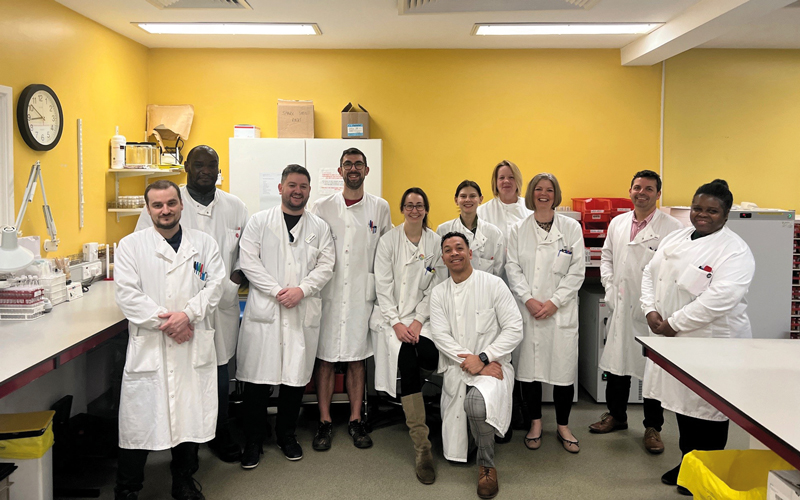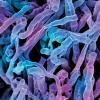Senior Biomedical Scientist James Griffiths gives a guided tour of his lab at the Royal Cornwall Hospital in Truro.

In the picturesque landscapes of Cornwall and the Isles of Scilly, the Royal Cornwall Hospital’s Clinical Microbiology service stands as a testament to excellence in biomedical science. Our service, comprising 54 dedicated staff operating around the clock, provides a vital seven-day service across a wide region. Our operations extend beyond the Royal Cornwall Hospital in Truro – we cater to 13 community hospitals and around 80 GP surgeries, including St Mary’s Community Hospital, which provides inpatient and outpatient clinics for people on the Isles of Scilly. Like many hospitals around the country, the health and care system in Cornwall and the Isles of Scilly is experiencing an ongoing extreme surge in demand. As an area of outstanding natural beauty, we also experience summertime pressures, with up to 210,000 people a day visiting Cornwall in the summer.
Accredited by UKAS, our clinically led microbiology services embody the highest standards of quality. We offer a comprehensive range of diagnostic testing, including bacteriology, virology, parasitology and mycology. Each day, our team delves into the complexities of various tests and investigations driven by a mission to aid in accurate diagnoses and effective treatment plans. Our work not only impacts individual patient care, but also shapes overall health outcomes in our community.
Being rural, our department has developed a keen academic focus on zoonoses, with notable research on diseases such as ascariasis, Staphylococcus pseudintermedius and autochthonous hepatitis E infection. This interest aligns with our commitment to addressing the unique public health challenges presented by our local geography. Recently efforts have been on the optimisation of non-O157 Shiga toxin-producing Escherichia coli (STEC) strain identification. The advent of routine faecal PCR screening has escalated STEC detection rates. However, the phenotypic variability of STEC strains has traditionally complicated their isolation and identification, a significant challenge given our region’s high incidence of E. coli O157, attributed to our rural and coastal landscape. Our innovative response involved the adoption of local algorithms, selective agar and latex agglutination assays, markedly improving the precision of case definitions from “possible” to “probable”. This advancement enables earlier notifications to health protection teams, ensuring swift clinical and public health interventions. These efforts underscore our laboratory’s dedication to leveraging technological advancements to enhance infectious disease diagnostics and public health protection.
Looking forward, the service is poised for a transformative leap with the upcoming construction of a new pathology building. This development, scheduled to commence in summer of 2024, represents a significant milestone in the long-term reconfiguration of the Royal Cornwall Hospital site in Truro, paving the way for the new Women and Children’s Hospital.
Central to our vision is the commitment to nurturing our staff’s expertise through continued development. This “grow-your-own” approach underscores our belief in our team’s potential and our dedication to the highest standards of patient care and public health service. By investing in our staff across all levels, from medical laboratory assistants to consultant clinical scientists, we ensure a future of skilled professionals ready to meet the challenges of healthcare and public health.
Image credit | Supplied




